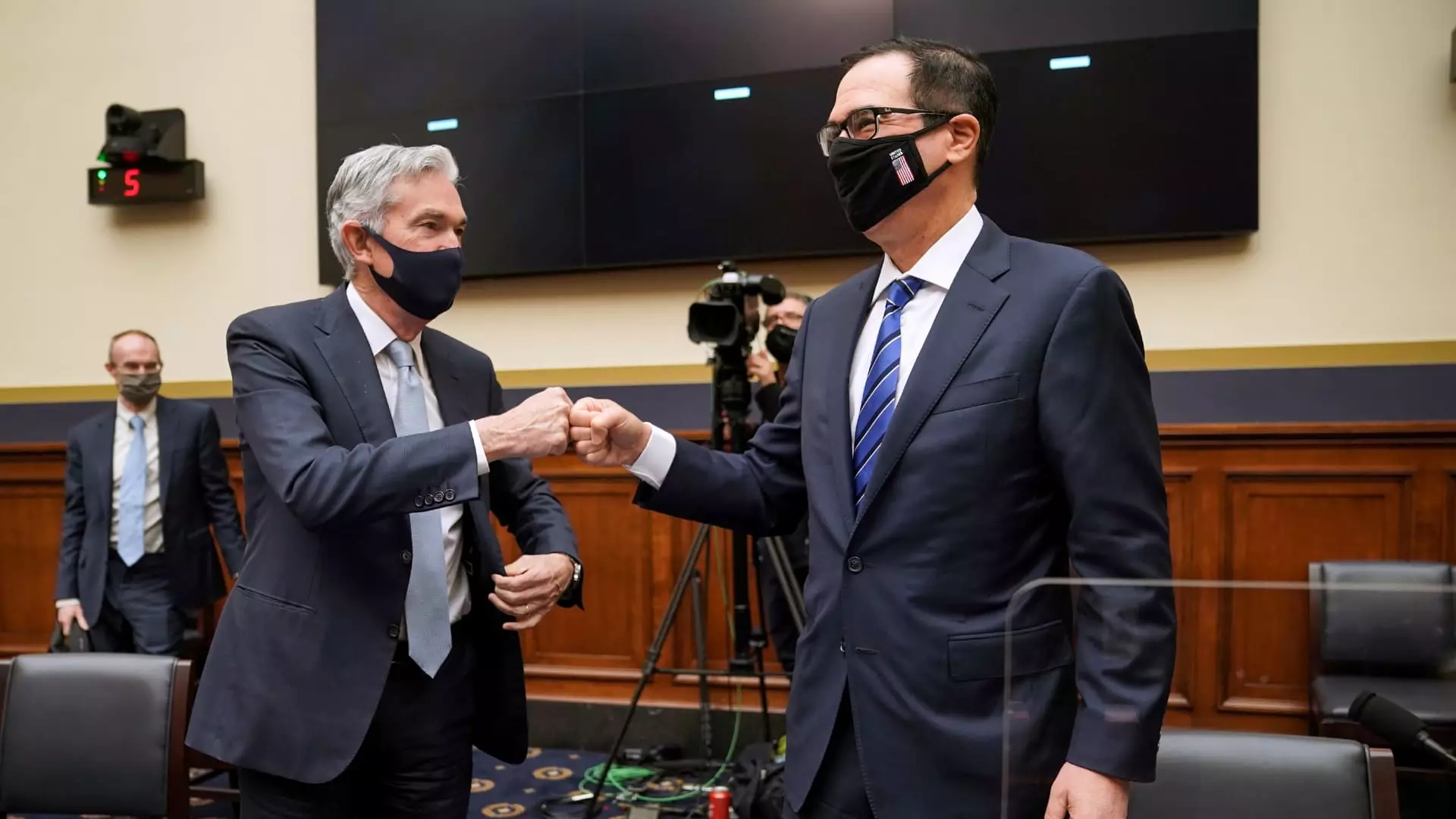The recent $1 billion funding injection by New York Community Bank led by ex-Treasury Secretary Steven Mnuchin’s Liberty Strategic Capital has highlighted the increasing trend of private equity players stepping in to assist financially struggling American lenders. This move not only helped to alleviate concerns about the bank’s financial stability but also resulted in a positive market reaction, with NYCB’s share price closing higher on the day of the announcement following a significant decline earlier in the trading session.
Moreover, this cash infusion is not an isolated incident, as seen in the past with last year’s acquisition of PacWest by Banc of California backed by funding from Warburg Pincus and Centerbridge Partners. Similarly, the January merger between FirstSun Capital and HomeStreet saw a significant influx of $175 million from Wellington Management. These examples illustrate the growing reliance of troubled banks on private equity investors to inject much-needed capital into their operations.
One of the key advantages of private equity investments for distressed banks is the speed and discretion with which these deals can be executed. According to financial experts and advisors involved in recent transactions, the ability to swiftly secure funding through private investors offers a crucial lifeline to banks facing immediate financial challenges. In contrast, raising capital through public markets can be a lengthier and more complex process, making it less feasible for banks in urgent need of funding.
Additionally, the discretion afforded by private deals enables banks to navigate sensitive financial situations without triggering undue speculation or market volatility. The cautionary tale of Silicon Valley Bank, which faced insurmountable pressure and ultimately failed to secure funding, serves as a stark reminder of the risks associated with public fundraising efforts. In contrast, private equity investments allow banks to negotiate and finalize deals behind closed doors, minimizing the impact on their stock prices and reputations.
The proactive involvement of private equity players like Steven Mnuchin in supporting distressed banks reflects a strategic approach to identifying and capitalizing on investment opportunities. Mnuchin’s track record, including the successful turnaround of California bank IndyMac, demonstrates his ability to navigate complex financial challenges and drive value creation in the banking sector. By directly engaging with NYCB and offering a substantial funding commitment, Mnuchin and his co-investors have demonstrated confidence in the bank’s deposit levels and capital position, giving NYCB the breathing room needed to address its underlying issues.
Furthermore, the timely intervention of private equity investors can help banks address critical deficiencies in their financial reporting and operational practices. NYCB’s recent acknowledgment of “material weaknesses” in its loan review processes underscores the importance of having access to additional capital to rectify and improve internal controls. By providing a significant financial cushion, private equity investments can prevent banks from facing imminent regulatory action and buy them valuable time to implement remedial measures.
The growing role of private equity investors in revitalizing struggling American lenders highlights the importance of swift and strategic capital injections in safeguarding the financial stability of these institutions. By leveraging their financial resources, expertise, and discretion, private equity players play a vital role in enabling banks to overcome immediate challenges, address underlying issues, and ultimately thrive in a competitive banking landscape.


Leave a Reply